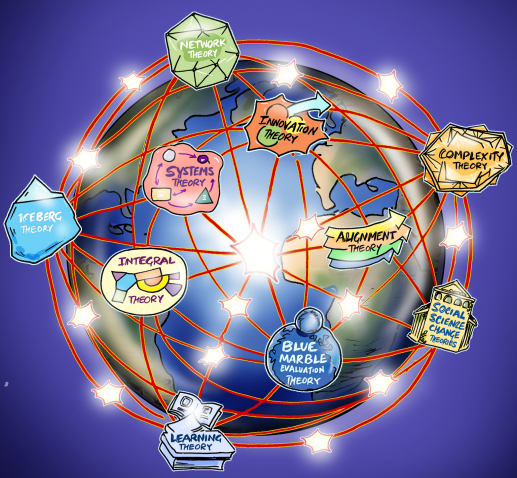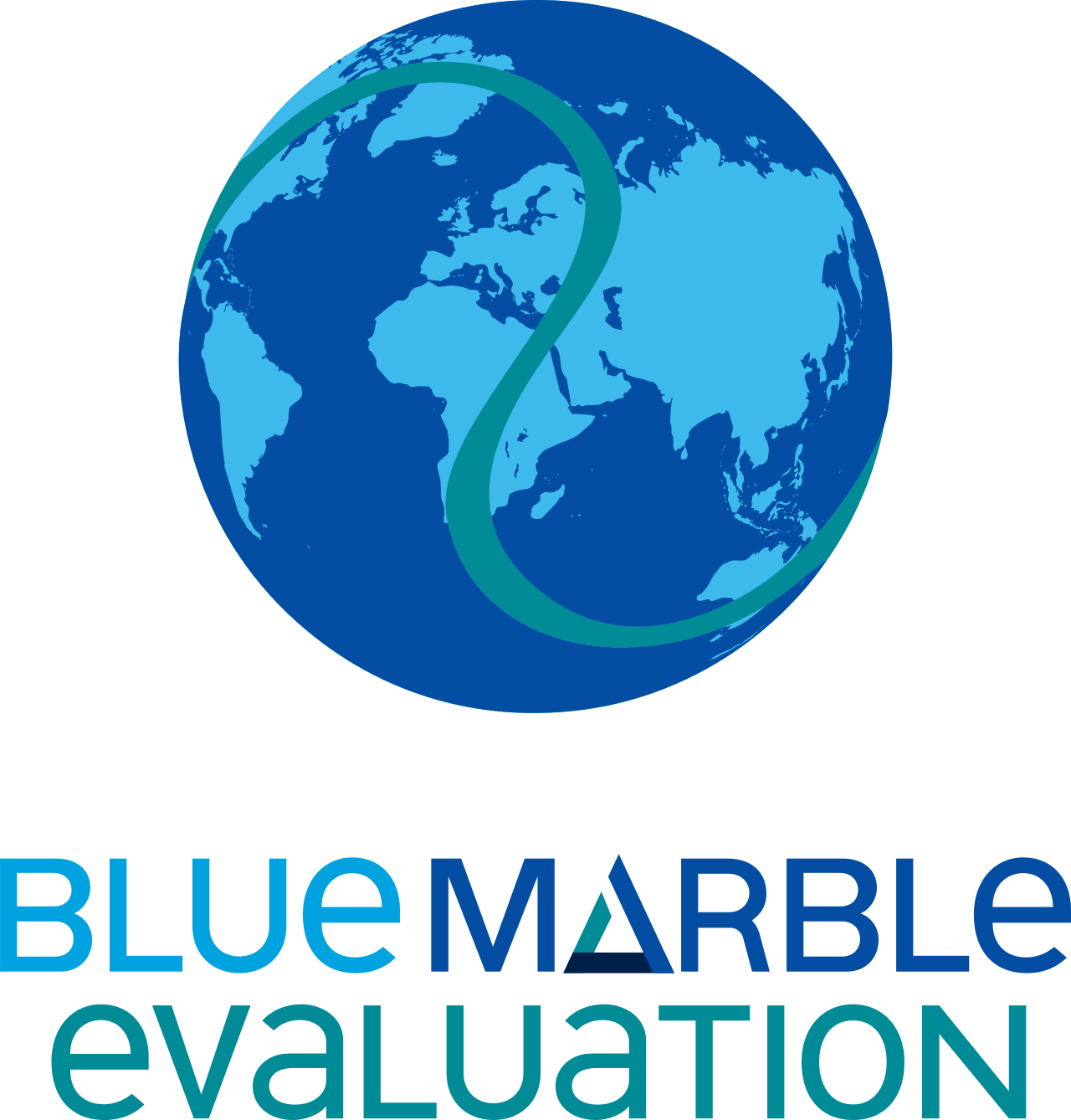The great acceleration of human activities over the past 10, 50, 100 years has changed the very nature of life support for all species who live together on this big “blue marble” we call planet Earth. As we navigate into the Anthropocene, with system-wide turbulence emerging all around us, we recognize the dire need for transformative change towards more just, equitable and regenerative futures. The first Nobel Prize Summit was held this year focusing on this dramatic challenge and concluded that “emerging technologies, social innovations, broader shifts in cultural repertoires, as well as a diverse portfolio of active stewardship of human actions in support of a resilient biosphere are highlighted as essential parts of such transformations”. In order to evaluate such transformations, the field of evaluation itself requires transformation. Blue Marble Evaluation as a core set of principles was launched in November 2019 with this urgent need in mind and today features a worldwide network of over 600 people who are learning how to practice Blue Marble evaluation. As a global network, we are bearing witness to, and participating in, a major turn in the story of humanity. Through a growing planetary awareness, we are the first generation to see the powerful strengths and life threatening costs of globalization driven by dominant economic paradigm of profit. There are no silver bullet solutions and simplistic linear logic models confound the problem. To confront this reality, we need to let go of mechanistic, narrowly focused theories of change and meaningless, fabricated SMART Goals. We must let go of the anachronistic, controlling, and compliance-driven results-based management and outdated evaluation criteria. To transform systems, such as global food systems, it will require dismantling and transforming this dysfunctional underlying development architecture. This presentation focuses on the practice of Blue Marble Evaluation by connecting diverse local contexts to global issues and trends.
For example, in preparation for the United Nations World Food Systems Summit Michael Quinn Patton shares results of how a global team of Blue Marble Evaluators are capturing and reporting the knowledge and voices of women who grow food, indigenous people who have worked their land for hundreds of years, smallholder farmers who feed their communities, and youth who are the future of agriculture. Through Blue Marble Evaluation, we put a spotlight on innovative ideas and practices while being diligent and thoughtful to integrate what is already working well. The World Food Program has documented that a child dies of hunger every 5 seconds. The COVID Pandemic has dramatically increased world hunger. To feed the world with nutritious food without damaging land and water requires food systems transformation worldwide. That’s where Blue Marble Evaluation comes in, examining how food systems can be transformed to eliminate hunger while saving the environment.
Glenn Page emphasizes how this work is applied to global hot-spots or “tipping elements” from the Amazon Rainforest to the Arctic Sea Ice that are central in regulating the state of the planet. He illustrates how Blue Marble Evaluation emphasizes the concept of bioregionalism and the integrated nature of local to global (influence of chemical and physical compositions of the atmosphere, how biodiversity contributes to generating and maintaining soils, controlling pests, pollinating food crops, and the flow of biogeochemical cycles). He illustrates examples of the practice of Blue Marble Evaluation and how it may be essential as our “hedge” against unanticipated ecosystem change that threatens the very life-support for our collective future on earth.



